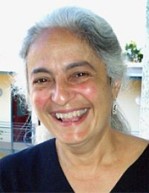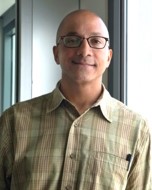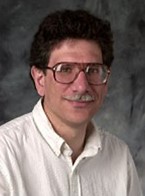Dr. Simone Pulver
Welcome to UCSB! We are thrilled to have you join our vibrant and dynamic community of researchers, teachers, and environmental stewards. As you embark on this exciting journey in Environmental Studies, you are stepping into a field that is critically important to the future of our planet.
The Environmental Studies Program’s mission is to educate students to become agents for change for a healthy and just environment. Nestled between the Santa Ynez Mountains and the Pacific Ocean, Santa Barbara provides an unparalleled natural laboratory for studying the environment. Our unique location offers you the chance to explore diverse ecosystems, from coastal habitats and marine environments to mountainous terrains and urban green spaces. Our program is designed to be interdisciplinary, drawing on insights from the natural sciences, social sciences, engineering, and humanities. From climate change and biodiversity loss to sustainable development and environmental justice, your coursework and experiences here will equip you with the knowledge, skills, and perspectives needed to make a meaningful impact. Moreover, you will have the opportunity to engage in hands-on learning, research, and community projects that will deepen your understanding of environmental issues and prepare you for a wide range of careers.
In addition to your academic pursuits, we encourage you to get involved in the many extracurricular activities and organizations dedicated to environmental advocacy and sustainability on campus and in Santa Barbara. Whether it’s joining the AS Environmental Affairs Board, pursuing an internship through the Environmental Studies Internship Program, or attending events hosted by UCSB Arts and Lectures, there are numerous ways to connect with like-minded peers and contribute to our campus and community sustainability initiatives.
As you begin this new chapter, remember that your professors, advisors, and peers are here to support you every step of the way. Getting to know your ES professors and ES advisors by talking to then after class or meeting with them during office hours is a first step to building relationships that will serve you during your entire time at UCSB. Together we can create inclusive and collaborative learning and social environments where you can thrive, both academically and personally.
The Environmental Studies Program at UCSB was established in 1970, becoming one of the first interdisciplinary environmental programs in the United States. The program was born out of the growing environmental consciousness of the 1960s, particularly following the 1969 Santa Barbara oil spill, which, at the time, was one of the worst environmental disasters in U.S. history. This incident galvanized students and faculty to push for a program that would address environmental challenges and prepare students to become leaders in the field.
Welcome to our community and know you are walking a path that over 9,000 students have walked before you!
Sincerely,
Simone Pulver
Associate Professor and Chair, Environmental Studies Program
Faculty Director, Center for Undergraduate Environmental Leadership

Previous Chair's Welcome Messages

Our program is one of the top undergraduate environmental programs in the country! It is rigorous yet flexible with a wide range of interesting classes, internships and other opportunities so it has a lot to offer a bright and talented student like you.
In the early days of the Environmental Movement, the issues seemed clear cut: clean up the air, clean up the water, bolster environmental protection and preserve wilderness. The “environment” was often seen as that part of the world where people didn’t live, and ecologists studied “pristine” ecosystems. Over time, and as we’ve solved the simple problems, our understanding of the “environment” and the intimate linkage between human cultural and socioeconomic systems and natural resources has changed. We have come to realize that the planet operates as an integrated “earth system” and that humans have dramatically altered the functioning of that system and are critical to solving the challenges of creating a healthier and more sustainable system. Thus increasingly we see environmental problems in a larger and more interwoven context. The “Environment” is as much about urban, suburban, and agricultural lands as it is about wilderness. Solving environmental problems means understanding human behavior and social and economic systems as well as the natural sciences. The discipline of Environmental Studies is thus an integrated inter- disciplinary study of the linkage between human and natural systems. The challenge of environmentalism remains about how to live well and help all people to live well, while being better stewards of the earth and the systems on which we depend. Accomplishing that goal requires educating people who will become effective environmental problem solvers and leaders. Educating those leaders has always been the goal of our Program and we have been successful in this goal: former UCSB-ES graduates are leaders with NASA, the National Park Service, State Resources Agencies, City and County Agencies, Universities and private corporations. We produce graduates who couple a commitment to enhancing our environment and the sustainability of the planet with insight and understanding of how human and natural systems function and the tools that can be used to enhance environmental well-being. Environmental Studies has built its strength by coupling classes taught by professors, who bring the most modern scholarship to the classroom, with classes taught by professionals from outside UCSB who bring the most modern practices to the classroom. These professionals include environmental lawyers, waste management supervisors, environmental consultants and City and regional planners. In addition to providing detailed practical knowledge, exposure to these professionals gives our students a first hand view of careers they might follow and often results in internship opportunities. In addition we believe strongly in the importance of getting students out of the classroom through field trips, internships both on and off campus, study abroad and environmental field studies programs. We also offer research opportunities with our faculty in areas as diverse as hydrological sciences, food systems sustainability, field ecology, history and policy.
When you consider the natural beauty of the Santa Barbara area, its diverse and extremely active local environmental community, and the unparalleled scholastic and academic excellence of our faculty and staff, it is hard to find anywhere else other than UCSB that offers the opportunities for an undergraduate to study, understand, and eventually solve the complex environmental problems of our modern world.
Thank you for your interest in our Program! Please do not hesitate to contact either our Academic Advising team or myself should you have any additional questions.

UCSB’s Environmental Studies Program is a vibrant community of inspiring faculty, lecturers, students and staff. We’re one of the first and most prestigious Environmental Studies programs in the nation. We are also one of the largest programs in terms of the cumulative numbers of student graduates over time-- around!
The Environmental Studies Program generates transformative ideas through research and educates students to become agents of change for a healthy and just environment. We train environmental leaders of the future and instruct our students in developing the skills, confidence, creativity, and power to positively change the trajectory of our planet at the local, national, and global scales. Our graduates are leaders in every sector, holding jobs in state and federal government, industry, and NGOs focused on, for example, promoting sustainable and environmentally smart city and county planning, advancing efficiency and ecological sustainability in business, introducing environmental education curriculum in school districts, improving waste management practices in U.S. cities, tackling climate change, and strengthening our democratic systems. Our program’s goal is to assist you in developing the skills needed to understand the complex environmental problems societies face, and to participate in generating solutions to these challenges. ES students gain these skills through classes with topnotch and skilled faculty instructors as well as through classes taught by leading environmental professionals. For example, our Waste Management course is taught by one of Santa Barbara County’s waste management professionals (also a graduate of our program!) and our environmental law sequence is taught by an accomplished attorney who specializes in land use and coastal environmental law. ES students have the honor of being part of the only major at UCSB that features core courses in the sciences, social sciences, and humanities—truly a world-class education.
In addition to stimulating classroom experiences, we try to ensure that our students get out of the actual classroom and into the field. We encourage involvement in Wildland Studies courses and the Education Abroad Program, and we offer a variety of field based courses within our own curriculum. Some of these get students out into wildland settings to view firsthand the challenges of managing wild places in a rapidly changing world. Other courses with a field element expose students to ecological restoration (and restoration internships), water distribution & politics, energy generation, coastal processes and their management, and agriculture and its intricate ties to an array of environmental challenges. Our amazing Undergraduate Advisor helps to place students into internships in a wide range of areas including law, planning, resources management, ocean pollution, environmental education, ecological restoration and more. We also encourage student involvement in research through collaboration with faculty, graduate students, and postdoctoral fellows, and we have small grants available to help facilitate this. A number of our faculty have produced cutting-edge scientific and policy-relevant research in partnership with ES undergraduates, and many of those students have traveled to professional conferences to share their work.
Finally, we have a number of exciting new initiatives that will enable students to go deeper with their work and to apply their skills to produce more inspiring and impactful change. These initiatives are the Environmental Leadership Incubator (ELI), the Center for Undergraduate Environmental Leadership (CUEL), and the Global Environmental Justice Project (GEJP). These centers are spaces of innovation, creativity, collaboration, and problem solving, where students work to produce research, science, technology, art, and actions that promote sustainable, equitable, and lasting solutions for the earth and its peoples in the 21st century.
When you consider the natural beauty of the Santa Barbara area, its diverse and extremely active and globally-connected environmental community, and the unrivaled scholastic and academic excellence of our faculty and staff, it is difficult to find anywhere else other than UCSB that offers these kinds of opportunities for an undergraduate to study, understand, and solve the complex environmental problems of our modern world.
As we near our 50th anniversary, we will host a series of campus-wide and public events for a national and global audience to commemorate the progress we have made in the program’s first half-century, while charting a course for what we plan to accomplish over the next fifty years.
Thank you for your interest in our Program!

Greetings, and welcome to the UCSB Environmental Studies Program. As the current ES Program Chair I’d like to introduce myself and offer you a brief overview of our program and the opportunities it has to offer to our students.
I am a soil ecologist: I study how microorganisms in soil make ecosystems work. I started life growing up in downtown Manhattan and went to study chemistry at Middlebury College. Somewhere along the way I discovered that I was more drawn to studying nature rather than test tubes, so I went to do a Ph.D. in Soil Science at UC Berkeley followed by postdoctoral work at the University of Aberdeen in Scotland and Michigan State. I then landed a job as an Assistant Professor at the University of Alaska in Fairbanks, just in time to become a leader on the Coastal Habitat Damage Assessment Program following the Exxon Valdez oil spill, and to
develop a research program on Arctic ecosystems and their role in climate change. I was there for 6 years before landing my dream job here at UCSB with a joint appointment between Ecology, Evolution, & Marine Biology, and the Environmental Studies Program. I have now been here for 10 years and it is a privilege and honor to serve and lead Environmental Studies, as it is an outstanding program that I am deeply committed to.
In the early days of the Environmental Movement, the issues seemed clear cut: air safe to breathe, rivers that didn’t catch fire, and preserving wilderness. The “environment” was often seen as that part of the world where people didn’t live, and ecologists studied “pristine” ecosystems. Over time, and as we’ve solved the simple problems, our perceptions of the “environment” have changed. We have come to realize that the planet operates as an integrated “earth system” and that humans have dramatically altered the functioning of that system.
Increasingly we see environmental problems in a larger and more entangled context: climate change, land use change, etc., and we have recognized that the environment is not somehow separate from humans. The “Environment” is as much about urban, suburban, and agricultural lands as it is about wilderness. We have come to see human and natural systems as equally complex and tightly interwoven with each other. The problems have changed and the scholarship that contributes to solutions has changed. It has shifted from a multi-disciplinary study of environmental affairs to an integrated inter-disciplinary study of the linkage between human and natural systems.
Several things, though, have not changed. The first is that the challenge of environmentalism remains about how to live well while being better stewards of the earth. The second is that accomplishing that goal requires educating people who will become effective environmental problem solvers and environmental leaders.
Educating those leaders has always been the goal of the Environmental Studies Program. We have always aimed to produce graduates who couple a commitment to enhancing our environment and the sustainability of the planet with solid insight and understanding of how human and natural systems function, and of the tools that can be used to enhance environmental well-being.
How we do that has changed, and we are now working to make our Program increasingly inter- rather than multi-disciplinary, interweaving discussions of how natural and human systems interact; How do issues such as human perception of the world (the humanities) alter human activities (the social sciences)? How do those activities alter the functioning of environmental systems (the natural sciences)? How do those changes then feed back to human perception and activity?
We are the only program on Campus that fully merges the three areas of scholarship and we fill a unique niche at UCSB. We believe that we have an important mission, and the Program faculty and staff are committed to furthering it, enhancing environmental education and ultimately environmental action.
Environmental Studies has always built its strength by coupling classes taught by professors, who bring the most modern scholarship to the classroom, with classes taught by lecturers, who come from outside UCSB and bring the most modern practices to the classroom. We have also always believed in the importance of getting students out of the classroom through field trips, internships, study abroad and environmental field studies programs. It is off-campus learning opportunities that ensure we incorporate real-world practical experience as a core element of our program.
Environmental problems invariably involve elements that come from both the natural and human systems. The ES Program at UCSB integrates the skills and knowledge of people in diverse areas to provide students with scholarly training and critical analysis skills in a range of disciplines. We share a belief that environmental protection is fully compatible with a healthy and vital economy: in fact economic and environmental well being often go hand in hand. And we have an amazing teaching and administrative staff whose friendliness and enthusiasm towards our students is unrivaled across campus.
When you consider the natural beauty of the Santa Barbara area, its diverse and extremely active local environmental community, and the unparalleled scholastic and academic excellence of our faculty and staff, it is hard to find anywhere else other than UCSB that offers the opportunities for an undergraduate to study, understand, and eventually solve the complex environmental problems of our modern world.
Thank you for your interest in the Environmental Studies Program and please do not hesitate to contact us should you have any questions.